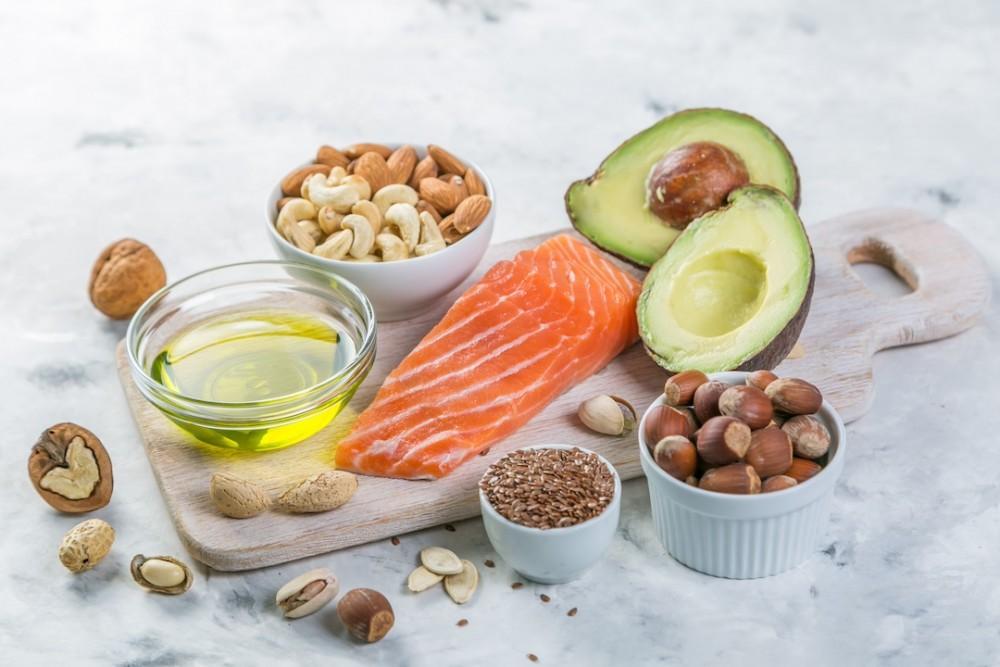
4 Essential Diet Changes for Healthy Bones with Osteoporosis

Adjusting to life with osteoporosis isn’t as easy as simply adding a glass of milk to every meal. Your body’s chemistry is a complex system with wide-ranging interactions, so while you can help your bones stay healthy, it takes a multi-faceted approach to nutrition.
Your bone health is essential to us at Bahri Orthopedics & Sports Medicine. Maintaining bone density is an important part of aging, and lifestyle changes can help with the process.
Today, we’ll examine four essential diet changes for healthy bones with osteoporosis. Eating well can be a delicious way to live life without pain or risk of injury.
How your bones age
It’s easy to think of your bones as dense, solid, and permanent structures, but in cross section, bone tissue has much in common with foam. To strike a balance between strength and weight, the interior of the bone contains many tiny pockets, like the bubbles in sponge toffee.
While bones may seem unchanging, they constantly evolve, with new tissue replacing old in a regeneration cycle.
As you age, however, this cycle slows, and bubbles get larger until they reach a critical point, at which point you develop osteoporosis, where bone tissue loses enough density to become brittle and prone to collapse or fracture.
4 essential diet changes for healthy bones with osteoporosis
Since the raw nutritional materials for bone regeneration come from your diet, it makes sense that there’s a bone-friendly eating plan that powers the process, helping you to minimize density loss. Let’s look at four eating habits you can add (if you haven’t already) to maintain bone health.
1. Vegetables, fruits, and whole grains
We often think of “calcium” when we think of bones, and while it’s important, it’s not the only critical component of bone tissue. In fact, bone is essentially calcium phosphate trapped in a collagen matrix, providing rigidity and strength from the minerals, while collagen gives flexibility to resist breaking.
Four or more servings of vegetables and three servings of fruit provide magnesium and potassium alongside vitamins A, C, and K, each of which is important for bone maintenance. Whole grains provide additional magnesium as well as fiber, which promotes healthy digestion and aids nutrient absorption.
2. Calcium
Adults should consume about 1,000 to 1,200 milligrams of calcium daily, but the average American diet usually provides less. Dairy products are the richest sources of calcium, and they include cheese, milk, and yogurt.
Vegetables like broccoli and kale can also increase calcium intake. Plant-based milk, including oats, almonds, and cashews, also delivers calcium.
Calcium supplements may help, but for bone maintenance, they must be combined with vitamin D and magnesium. Look for a product with this combination.
3. Healthy fats and proteins
Beans and nuts are good vegetable protein sources, an essential bone maintenance component in fish and lean meats. The fats found in nuts, fatty omega-3 fish, and olive oil provide the monounsaturated fats necessary for your body to function. Saturated fats work against bone health, so limit these when possible.
4. Limit salt and sugar
When your salt intake is high, you might be losing hard-earned calcium in your urine. Be aware of salt in processed foods, which are often a substantial source of hidden sodium. Processed foods can also be high in sugar, which adds calories but offers little in the way of nutrition.
Making these four changes can substantially alter your body's bone maintenance process. Combine them with regular physical activity, including weight training, and you will have an osteoporosis-fighting routine that provides a wide range of benefits across the fitness spectrum.
When you suffer from osteoporosis symptoms, visit us at Bahri Orthopedics & Sports Clinic. Schedule an appointment by phone or through our online link today.
You Might Also Enjoy...


Navigating the Holidays After a Hip Replacement: 4 Top Tips

Knee Arthroscopy for Meniscus Tears: Fast Recovery, Stronger Knees

What is “Bamboo Spine” and Why Does it Happen?

Are Tennis and Golfer’s Elbow the Same Thing?


